X-MEN: FIRST CLASS: A Mutant Franchise Learns To Control Its Powers
As ready-made as some comic books might seem for film adaptations, some of them have a complexity that makes it difficult to capture their essence on the big screen. The X-Men is a good example: despite its movie-friendly elements - a strong component of melodrama, a guys-on-a-mission element that allows for multiple adventures - it also has a scope, both in terms of narrative and psychology, that is a little too heady and cerebral for the average Hollywood event movie.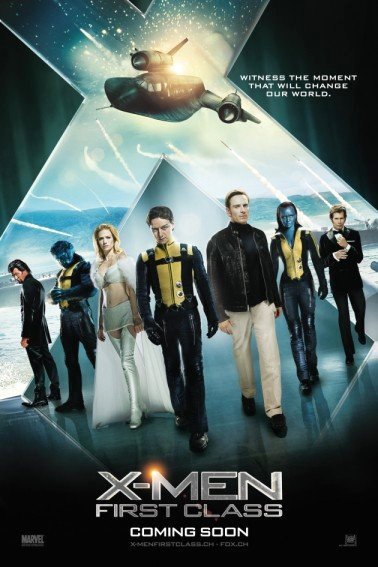 Thus, the initial trilogy of X-Men movies are problematic, despite some good qualities. The first two films in this series were noble attempts that nonetheless struggled with studio-imposed corner-cutting in their budgets and hamfisted attempts to boil down complex multi-issue story arcs into convenient subplots... and the less said of the Brett Ratner-directed third film, the better.However, we live in a moviemaking era where anything that has been successful in the last decade or so is ripe for a reboot - and that brings us to X-Men: First Class, a new kick at the X-Men can that was masterminded by Kick-Ass director Matthew Vaughn. This time, the blend of components gels nicely, with a psychological depth and scope that no previous version could have hoped to achieve.
Thus, the initial trilogy of X-Men movies are problematic, despite some good qualities. The first two films in this series were noble attempts that nonetheless struggled with studio-imposed corner-cutting in their budgets and hamfisted attempts to boil down complex multi-issue story arcs into convenient subplots... and the less said of the Brett Ratner-directed third film, the better.However, we live in a moviemaking era where anything that has been successful in the last decade or so is ripe for a reboot - and that brings us to X-Men: First Class, a new kick at the X-Men can that was masterminded by Kick-Ass director Matthew Vaughn. This time, the blend of components gels nicely, with a psychological depth and scope that no previous version could have hoped to achieve.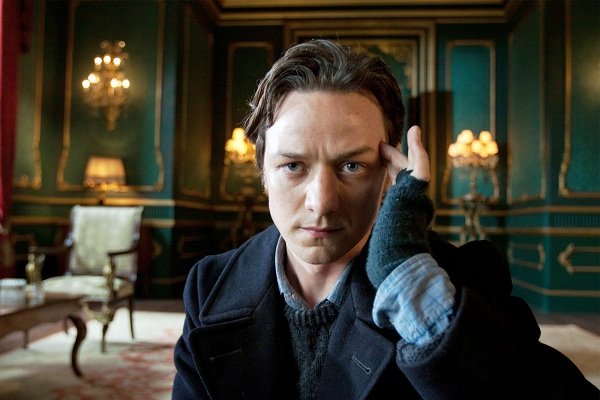 X-Men: First Class works because it does not attempt to recycle the successful parts of its predecessors. Instead, it rebuilds the story from the ground-up, right down to its take on the characters and their relationships. A few effective sequences set up our main characters. Erik Lensherr (Michael Fassbender), soon to be known as Magneto, spends a hellish childhood as the obsession/project of cruel Nazi scientist Sebastian Shaw (Kevin Bacon). Meanwhile, young Charles Xavier (James MacAvoy) grows up as privileged yet decent young man who has psychic powers
X-Men: First Class works because it does not attempt to recycle the successful parts of its predecessors. Instead, it rebuilds the story from the ground-up, right down to its take on the characters and their relationships. A few effective sequences set up our main characters. Erik Lensherr (Michael Fassbender), soon to be known as Magneto, spends a hellish childhood as the obsession/project of cruel Nazi scientist Sebastian Shaw (Kevin Bacon). Meanwhile, young Charles Xavier (James MacAvoy) grows up as privileged yet decent young man who has psychic powers 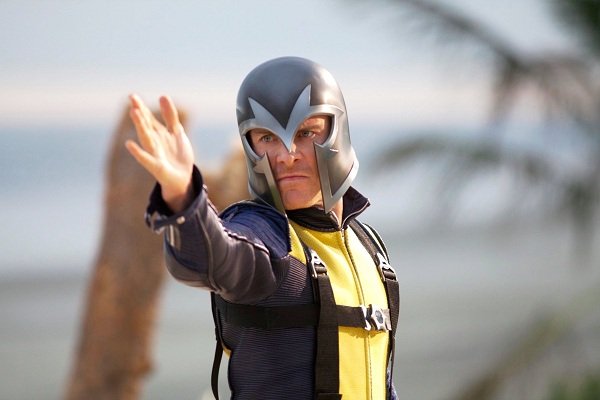 and a desire to connect with others like him. He even "adopts" Raven (Jennifer Lawrence) as a surrogate sister, sadly blind to the fact that she's in love with him.As this trio grows into adults, their lives become complicated. Charles sees himself as a sort of ambassador from the "mutant" world and wishes to collect others like him so they can be trained to use their abilities for the betterment of mankind. Erik becomes reluctantly involved: he'd rather hunt for Shaw but is won over by his admiration for Charles, who helps him focus his powers.
and a desire to connect with others like him. He even "adopts" Raven (Jennifer Lawrence) as a surrogate sister, sadly blind to the fact that she's in love with him.As this trio grows into adults, their lives become complicated. Charles sees himself as a sort of ambassador from the "mutant" world and wishes to collect others like him so they can be trained to use their abilities for the betterment of mankind. Erik becomes reluctantly involved: he'd rather hunt for Shaw but is won over by his admiration for Charles, who helps him focus his powers.  Raven sticks close by but slowly becomes bitter as Charles' world-changing plans leave less and less room for her. Erik's past comes back to haunt them all when they discover that Shaw is more than human - and his evil organization, the Hellfire Club, is doing some mutant collecting of its own. Thus, the stage is set for multiple battles: good mutants vs. bad mutants, Charles' ideals vs. Erik's hunger for revenge and the normal world vs. these talented but dangerous outcasts.
Raven sticks close by but slowly becomes bitter as Charles' world-changing plans leave less and less room for her. Erik's past comes back to haunt them all when they discover that Shaw is more than human - and his evil organization, the Hellfire Club, is doing some mutant collecting of its own. Thus, the stage is set for multiple battles: good mutants vs. bad mutants, Charles' ideals vs. Erik's hunger for revenge and the normal world vs. these talented but dangerous outcasts.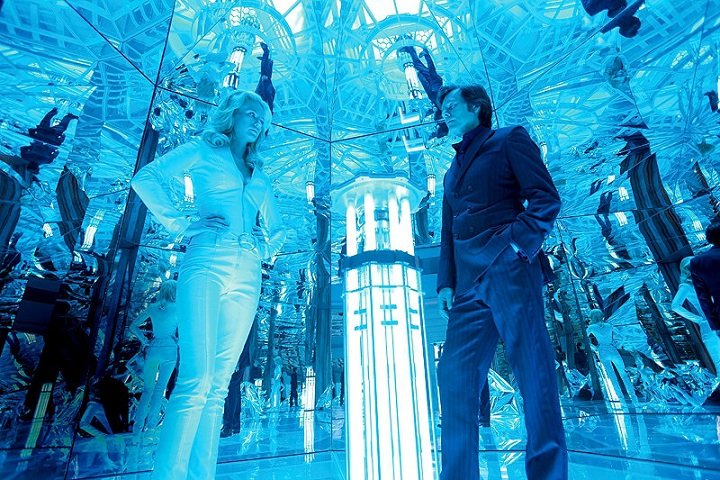 The end result is substantial in a way that superhero movies usually are not. The focus here is drama and philosophical conflict, with bombastic action scenes downplayed in favor of a globe-trotting, almost James Bond-esque adventure/mystery narrative. The quartet of screenwriters who assembled this storyline - Ashley Miller, Zack Stentz, Vaughn and Jane Goldman - have created a story where the character conflicts are as crucial to the film's overall effect as the super-power showcases. Thus when, the big action comes in the final third, it packs a
The end result is substantial in a way that superhero movies usually are not. The focus here is drama and philosophical conflict, with bombastic action scenes downplayed in favor of a globe-trotting, almost James Bond-esque adventure/mystery narrative. The quartet of screenwriters who assembled this storyline - Ashley Miller, Zack Stentz, Vaughn and Jane Goldman - have created a story where the character conflicts are as crucial to the film's overall effect as the super-power showcases. Thus when, the big action comes in the final third, it packs a 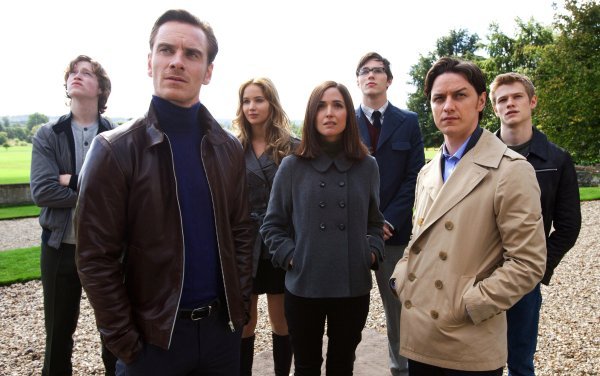 psychological punch that raises its stakes. Comics geeks might quibble with some noteworthy changes to origins and relationships here - but this is best viewed as the filmmakers doing what it is necessary to make a good film out of a property from another medium. All the changes work and ensure that this film works in a way that will communicate beyond the comic book fan world.
psychological punch that raises its stakes. Comics geeks might quibble with some noteworthy changes to origins and relationships here - but this is best viewed as the filmmakers doing what it is necessary to make a good film out of a property from another medium. All the changes work and ensure that this film works in a way that will communicate beyond the comic book fan world.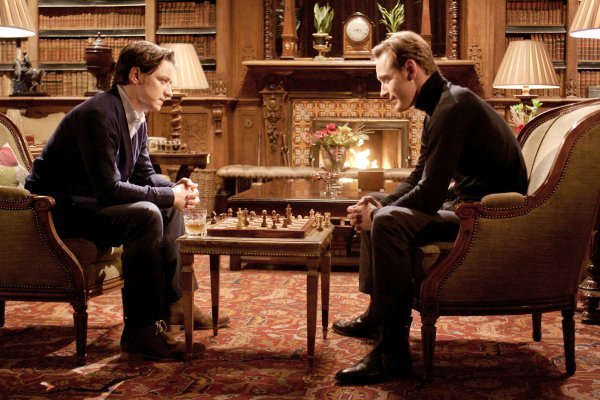 It also helps that a lot of smart casting choices were made to fill the film's complex roles. MacAvoy and Fassbender make an excellent alpha-omega team: MacAvoy charms as a man full of grand dreams and bottomless goodwill for his fellow mutants (yet fatally blind to emotional matters, particularly how the outside world will always fear his kind) while Fassbender creates a lost soul who dreams of a better life but also burdened with a trauma-induced worldview that twists him in the direction of revenge and evil. Lawrence also gives a
It also helps that a lot of smart casting choices were made to fill the film's complex roles. MacAvoy and Fassbender make an excellent alpha-omega team: MacAvoy charms as a man full of grand dreams and bottomless goodwill for his fellow mutants (yet fatally blind to emotional matters, particularly how the outside world will always fear his kind) while Fassbender creates a lost soul who dreams of a better life but also burdened with a trauma-induced worldview that twists him in the direction of revenge and evil. Lawrence also gives a 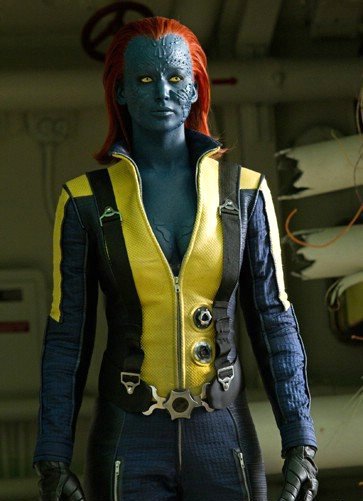 performance of impressive emotional weight, wordlessly conveying the frustrated desires of her character as the dark side beckons her closer. Bacon has the showiest of roles as the main villain, skirting the edge of bad-guy camp but never succumbing to it as he creates an exuberant portrait of evil.Finally, the appeal of X-Men: First Class is sealed by the directorial smarts of Vaughn. He was originally tapped to direct the 3rd X-Men film but declined it due to artistic disagreements... and it's a good thing he waited for a few reasons. For starters, it allowed him to make Kick-Ass, which proved he can handle both the action and the psychology necessary to make a superhero movie connect. It also allowed him the opportunity to develop a more sophisticated take on the superhero movie concept. He handles the
performance of impressive emotional weight, wordlessly conveying the frustrated desires of her character as the dark side beckons her closer. Bacon has the showiest of roles as the main villain, skirting the edge of bad-guy camp but never succumbing to it as he creates an exuberant portrait of evil.Finally, the appeal of X-Men: First Class is sealed by the directorial smarts of Vaughn. He was originally tapped to direct the 3rd X-Men film but declined it due to artistic disagreements... and it's a good thing he waited for a few reasons. For starters, it allowed him to make Kick-Ass, which proved he can handle both the action and the psychology necessary to make a superhero movie connect. It also allowed him the opportunity to develop a more sophisticated take on the superhero movie concept. He handles the 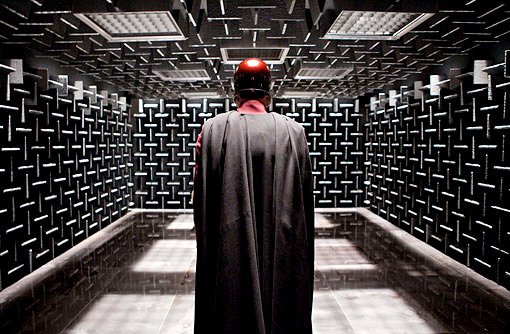 setpieces and the physical scope beautifully - the ocean-set finale is the best action sequence in a superhero movie in years - but he is also attentive to theme and performance in a way that cinches up all the story's surface excitement into a truly unified package.In short, X-Men: First Class is easily the best take on this franchise to date. If the superhero movie cycle is going to continue on, let's hope future films offer the amount of substance and careful craftsmanship on display here.
setpieces and the physical scope beautifully - the ocean-set finale is the best action sequence in a superhero movie in years - but he is also attentive to theme and performance in a way that cinches up all the story's surface excitement into a truly unified package.In short, X-Men: First Class is easily the best take on this franchise to date. If the superhero movie cycle is going to continue on, let's hope future films offer the amount of substance and careful craftsmanship on display here.


